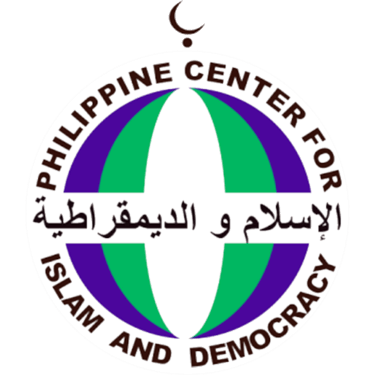NewsInvestment offers new hope for Mindanao peace

JICA president Shinichi Kitaoka, third from right, shakes hands with MILF vice-chair Ghadzali Jaafar in the province of Maguindanao on March 2.
MANILA — With a population of 20 million and a wealth of natural resources, the growth potential of Mindanao has never been in question. But 40 years of armed conflict between Muslim separatists and the central government have meant it has largely gone untapped.
Sometimes referred to as Asia’s “last frontier,” the southernmost major island in the Philippines may finally be showing signs of development under private sector initiative.
Development grant
Under a scorching hot sun on March 1, the head of Japan’s aid agency made the hourlong journey along the bumpy, palm-lined road from the city of Cotabato to the town of Alamada. Shinichi Kitaoka was in town to attend the groundbreaking ceremony for a new road in the vast fertile area funded by grant-in-aid of 442 million pesos ($9.42 million) from the Japan International Cooperation Agency.
The project marks the first time that JICA has funded infrastructure development in a conflict area. Alamada Mayor Virginia Concepcion said the farm road should contribute to local economic development.
JICA’s move to provide the aid was due to the delays to infrastructure-development projects caused by the prolonged armed dispute.
Some 90% of the 100-million-strong Philippine population are Christian. Muslims account for roughly 5% and are concentrated in parts of Mindanao. Armed disputes began to intensify in the early 1970s after increased Christian settlement of the island. More than 100,000 people have reportedly been killed as a result of the conflict.
Mindanao has an area of 100,000 square kilometers and is believed to be rich in resources of gold, copper and nickel. But the armed struggle for an autonomous Muslim region has held back any efforts to exploit those resources.
In 2014, the Moro Islamic Liberation Front, or MILF, the main separatist group, signed a comprehensive peace deal with the Philippine government.
This came after years of tortuous negotiations, often conducted in secret. One meeting was arranged in 2011 by the Japanese government near Tokyo’s Narita Airport
The Muslim population hopes for greater autonomy for the region based on the 2014 accord. And the Bangsamoro Basic Law, a bill that would have paved the way for the proposed new political entity, appeared to be making headway.
In January 2015, however, a clash between the MILF and a special police unit left 44 police as well as a number of MILF fighters and civilians dead. The renewed mutual mistrust led to the Philippine Congress rejecting the basic law’s passage.
Even so, the peace process remains largely on track. Despite the bill failing to go through, both the Philippine government and the MILF are still intent on seeing through the 2014 accord. In addition, the emergence of business startups has raised hopes that the fighting may finally come to an end.
Big retailers
Major Manila-based department stores and supermarkets are beginning to set up shop in Cotabato, a city with a population of 300,000 lying close to MILF strongholds.
Centro Department Stores opened its first Mindanao outlet in the city in September 2015. “Our store offers goods that until recently were only available in Manila,” an official said.
Supermarket operator Puregold Price Club, which has tied up with Japanese convenience store chain Lawson, opened its first store in Cotabato last year, with a second one underway in 2016.
Since the Bangsamoro legislature was scrapped, no major violence occurred in the affected areas. And the benefits of economic growth brought about by businesses thriving will only further local people’s resentment of armed conflict.
On March 2, Kitaoka met MILF leaders and pledged JICA’s continued support for the peace process.
“If peace is not achieved in Mindanao, it cannot be achieved anywhere in the world,” Kitaoka said at a press conference. “We will continue support so as to show dividends of peace to people.”
Although the organization is not in a position to provide direct support to private companies, logistic support, such as the construction of roads in areas hosting businesses, is possible.
The Bangsamoro legislature is “no more than part of the peace process,” said Takayuki Nakagawa, an official dispatched by the Japanese government to the International Monitoring Team in Mindanao. “Support from the international community is necessary to prevent the process from going backward.”
If order is restored in Mindanao, the island becomes an attractive destination for foreign investment. National elections in May will decide the next president and how the new leader will handle the peace process remains uncertain. What is certain is that economic growth under private sector initiative can only drive forward the process.
